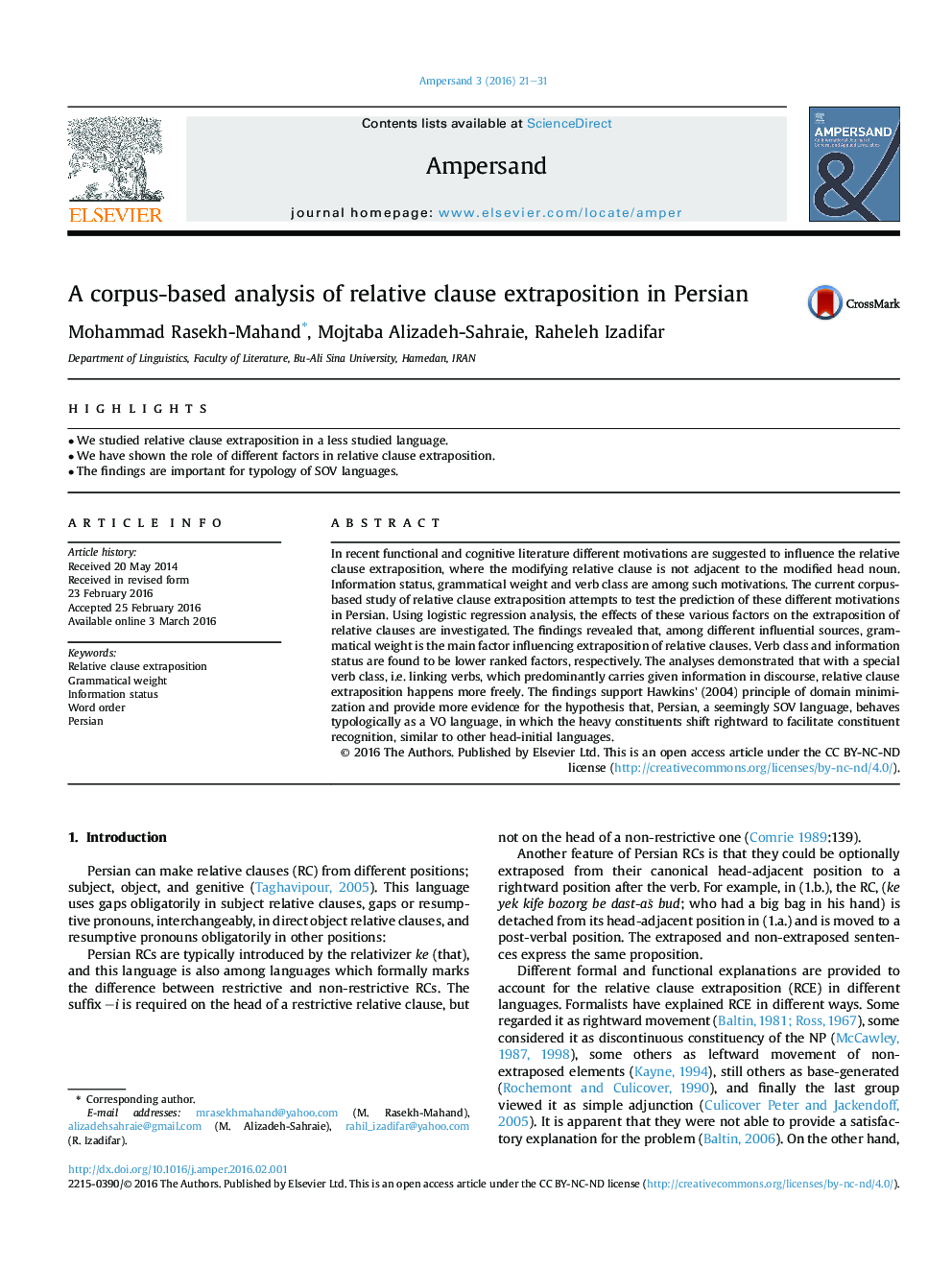| Article ID | Journal | Published Year | Pages | File Type |
|---|---|---|---|---|
| 1100455 | Ampersand | 2016 | 11 Pages |
•We studied relative clause extraposition in a less studied language.•We have shown the role of different factors in relative clause extraposition.•The findings are important for typology of SOV languages.
In recent functional and cognitive literature different motivations are suggested to influence the relative clause extraposition, where the modifying relative clause is not adjacent to the modified head noun. Information status, grammatical weight and verb class are among such motivations. The current corpus-based study of relative clause extraposition attempts to test the prediction of these different motivations in Persian. Using logistic regression analysis, the effects of these various factors on the extraposition of relative clauses are investigated. The findings revealed that, among different influential sources, grammatical weight is the main factor influencing extraposition of relative clauses. Verb class and information status are found to be lower ranked factors, respectively. The analyses demonstrated that with a special verb class, i.e. linking verbs, which predominantly carries given information in discourse, relative clause extraposition happens more freely. The findings support Hawkins' (2004) principle of domain minimization and provide more evidence for the hypothesis that, Persian, a seemingly SOV language, behaves typologically as a VO language, in which the heavy constituents shift rightward to facilitate constituent recognition, similar to other head-initial languages.
